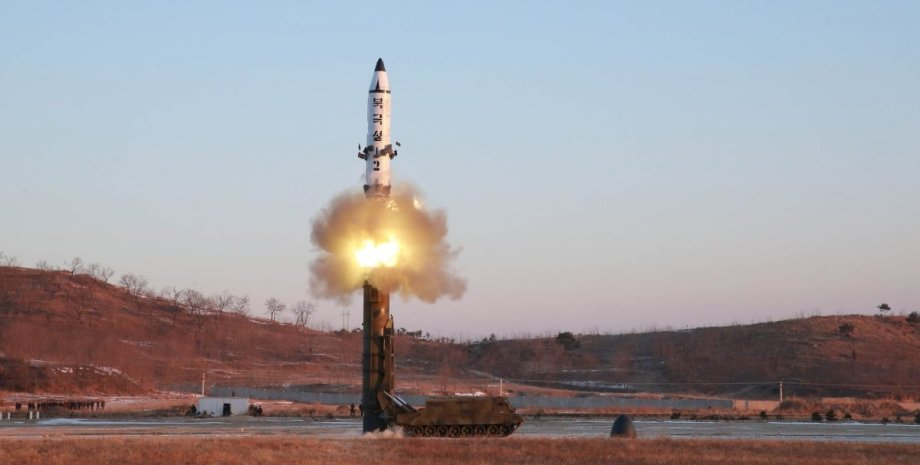
It is reported that the PukGuksong-2 rocket, known in the American classification as KN-15, was created in conditions of increased secrecy, so its accurate tactical and technical characteristics are unknown. According to open sources, its working range is from 1200-1300 km. Other sources write about the range from 2000 km and even 3000 km, but experts consider the last figure unlikely. According to the publication, PukGuksong-2 is a solid fuel two-stage rocket about 9 m long and 1. 5 m in diameter.
A caterpillar chassis was selected as a PUKGUKGUKGUKGUKGUKSONG-2 platform. In fact, it is a landing variant of the ballistic missile PukGuksong-1, designed for launching from submarines. According to unofficial data, the development of a PukGuksong-2 missile could start before 2014. The North Korean Media was officially declared in February 2017, noting that it flew about 500 km and was able to reach a maximum height of 550 km.
Later, the placement of this rocket on the DPRK's military bases was also reported. Experts do not exclude that North Korea could transfer PukGuksong-2 to Russian to check rockets directly in combat. Today, experts have already noted the low efficiency of the North Korean KN-23, also transferred to the Russian Federation.
The authors of the article emphasized that before the appearance of clearer images or official comments, it is impossible to say with certainty that the Russian Federation really received the North Korean missiles PukGuksong-2. At the same time, experts do not rule out that Moscow and Pyongyang could have agreed on additional strengthening of the Russian army.
All rights reserved IN-Ukraine.info - 2022